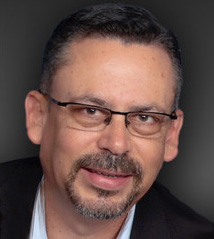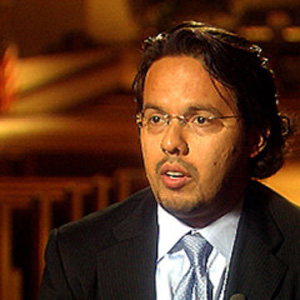ORLANDO, Fla. (RNS)—For Southern Baptist Pastor David Uth, immigration reform became a priority after a family in his Orlando, Fla., megachurch faced deportation.
Ricardo McClin insisted it was time to speak up when members of a Church of God congregation he oversaw as bishop stopped worshipping in Jacksonville, Fla., because they feared detention.
As Congress appears close to hammering out new immigration policy, religious leaders—especially evangelicals—say personal encounters with the current system have prompted them to advocate for reform.
“We’ve sensed in our church this growing understanding that immigration has a face,” said Uth, pastor of First Baptist in Orlando. “It has a name. It has a story.”
A recent poll shows white evangelicals are less supportive—at 56 percent—than other religious groups of allowing immigrants living in the United States illegally to become citizens. But leaders say there’s been a sea change in the last couple of years as they hear about church members being detained or deported and the effects of those measures on their families.
The Evangelical Immigration Table has mounted a six-figure campaign that includes Christian radio ads, distribution of more than 100,000 bookmarks urging congregants and members of Congress to read Bible passages about “welcoming the stranger.” The group also planned a recent lobbying day in Washington.
 Ricardo McClinMcClin, a former district supervisor for the Tennessee-based Church of God, said a predominantly immigrant church in Jacksonville shut down after going through ups and downs in attendance by fearful worshippers.
Ricardo McClinMcClin, a former district supervisor for the Tennessee-based Church of God, said a predominantly immigrant church in Jacksonville shut down after going through ups and downs in attendance by fearful worshippers.
“One Sunday, there’s a service—we had 80, 100 people,” he recalled. “And the following Sunday, there would be nobody.”
“I can’t pretend that everything is going to be OK because of faith,” said McClin, now a pastor in Kissimmee, Fla. “Faith has to be put to work.”
Sign up for our weekly edition and get all our headlines in your inbox on Thursdays
Samuel Rodriguez, a longtime advocate for immigration reform, said personal experiences have driven many non-Hispanic clergy “off the fence.”
“This is now a Christian issue,” said Rodriguez, president of the National Hispanic Christian Leadership Conference. “It’s not a political issue. It became a Road to Damascus moment.”
In January a broad network of churches—including mainline Protestant, historically black, Orthodox, Catholic, evangelical and Pentecostal leaders—issued a statement calling on Congress and the president to improve the laws.
“Each day in our congregations and communities, we bear witness to the effects of a system that continues the separation of families and the exploitation, abuse and deaths of migrants,” Christian Churches Together in the USA declared.
 Jim WallisJim Wallis, the evangelical founder of the anti-poverty group Sojourners, said some Christians have seen a passage from the Gospel of Matthew in a new light. It includes the verse that reads: “I was a stranger, and you welcomed me.” A “biblical conversion” is occurring, along with a relational one, he insisted.
Jim WallisJim Wallis, the evangelical founder of the anti-poverty group Sojourners, said some Christians have seen a passage from the Gospel of Matthew in a new light. It includes the verse that reads: “I was a stranger, and you welcomed me.” A “biblical conversion” is occurring, along with a relational one, he insisted.
“When you worship with people, you get to know them, and you get to know their lives and their families and their kids, and so stereotypes go away,” said Wallis, author of the new book, On God’s Side: What Religion Forgets and Politics Hasn’t Learned About Serving the Common Good. “And you understand who they are, and that changes you.”
Evangelical leaders hope to use newfound support to galvanize Congress. Scores of pastors are meeting with legislators in their home districts and in Washington, urging them to take the “I Was A Stranger” challenge and study related Bible verses for 40 days.
 Samuel RodriguezRecently, Rep. Randy Hultgren, R-Ill., met with evangelical leaders at an Aurora, Ill., church. Huntgren, who attends an evangelical church, committed to read the several Scripture passages and took extra bookmarks to share with members of his congressional Bible study group in Washington, according to his spokesman, Josh Wessell.
Samuel RodriguezRecently, Rep. Randy Hultgren, R-Ill., met with evangelical leaders at an Aurora, Ill., church. Huntgren, who attends an evangelical church, committed to read the several Scripture passages and took extra bookmarks to share with members of his congressional Bible study group in Washington, according to his spokesman, Josh Wessell.
The congressman’s primary focus has been border security, but he is in an “information-gathering phase,” Wessell said.
“He’s seeking input from folks, particularly leaders in the faith community, on how to successfully balance federal immigration policy with his faith and biblical principles,” Wessell said.
Beyond the biblical focus, some evangelical leaders are addressing immigration reform for strategic reasons.
While some predominantly white evangelical congregations may not have any immigrants in their pews, denominational leaders are aware immigrants are contributing to the growth of their churches, said Matthew Soerens, U.S. church training specialist for World Relief, a founding member of the Evangelical Immigration Table.
“If you’re in a denominational office, you know that,” he said. “And you don’t want to see the part of your church that is growing deported.”
















We seek to connect God’s story and God’s people around the world. To learn more about God’s story, click here.
Send comments and feedback to Eric Black, our editor. For comments to be published, please specify “letter to the editor.” Maximum length for publication is 300 words.